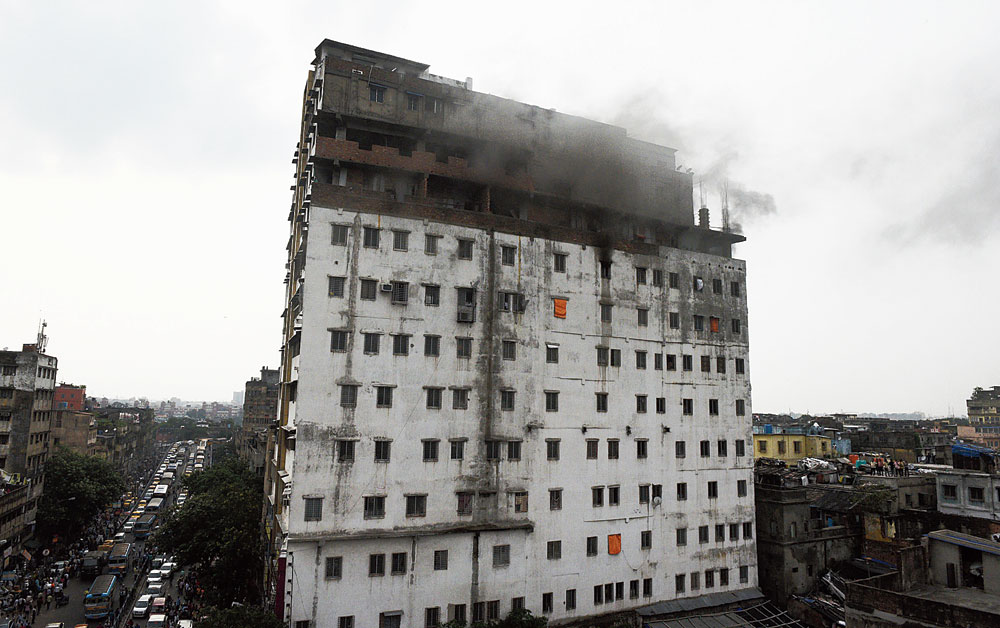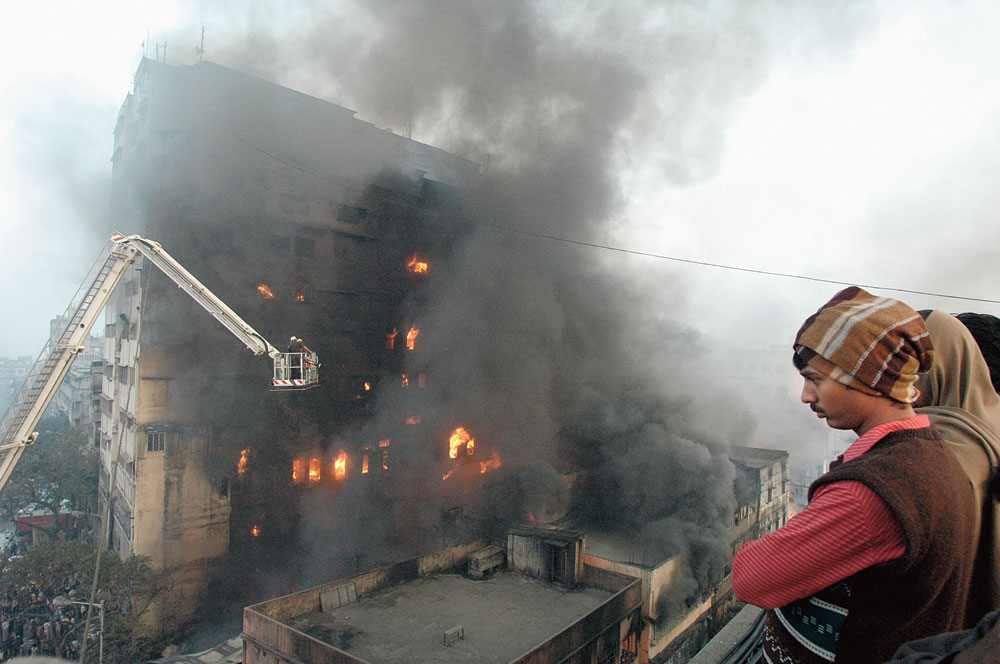The Calcutta Municipal Corporation will no longer insist on a no-objection certificate (NOC) from the fire department before issuing a trade licence, amending a rule that had made the fire department’s clearance mandatory to obtain the licence.
The change, announced by mayor Firhad Hakim on Wednesday, means businesses that were under pressure to install fire-safety tools on their premises can now run without any such measure till the fire department notices the violations and closes them down.
Sources in the corporation said the fire department’s go-slow approach in issuing the clearance was robbing them of crores of rupees in revenue every year.
A civic official said that since the NOC from the fire department and the certificate of enlistment, colloquially called trade licence, were linked, many businesses were running without either.
“In the absence of proper vigilance, the establishments are running but the civic body is not earning any revenue from them because they don’t have a trade licence,” the official said.
He, however, expressed concern that with the trade licence having been delinked from the fire department’s NOC, many business establishments would not bother to implement the safety measures.

Nandaram Market after a fire gutted two rooms on the ninth floor in July 2019 (Telegraph picture)
A senior officer of the fire department said the trade licence had been linked to the NOC from their department after the Nandaram Market fire in 2008. The 100-hour blaze exposed the disturbing fact that many business establishments lacked the fire department’s no-objection certificate.
The turnaround came 11 days after yet another fire broke out at the Burrabazar trading hub.
“We have decided to delink the fire NOC from the trade licence. We will issue a trade licence even without any NOC from the fire department,” mayor Hakim said at the corporation headquarters.
“The fire department has the power to stop any business if it doesn’t have the required fire-safety measures. The fire department’s action does not depend on whether the business has a trade licence or not, Hakim said.
Officials said the change, effected through an amendment to the Calcutta Municipal Corporation Act, will come into effect from this fiscal.
An officer in the fire department said the change in rule had put the entire onus to ensure safety on them. “We will have to do all the checking. Our officers will do the necessary work,” he said.
A retired senior fire brigade officer said he was disappointed with the amendment. “Revenue is becoming all important. Who will take responsibility if there is a fire?” he asked.
The officer said the earlier decision to link the trade licence with the fire department’s NOC had been yielding results.
“I know many establishments had installed fire-safety gadgets fearing that lack of such measures would cost them their trade licence. This amendment will remove that fear,” the officer said.
Till the 2018-19 fiscal, trade licences were issued only if the owners could produce the fire department NOC. “We found that many businesses were running and making money though they did not have a trade licence. We didn’t issue the trade licence because the owners failed to produce the fire department’s consent letter but that did not stop them from running their businesses,” a CMC official said.
The official said the owners were in no hurry to implement the safety measures and obtain the trade licence.
“The CMC Act does not give us the authority to close down any business. So, despite knowing that businesses were running without a trade licence, we could do little,” the official said.
He, however, admitted that the CMC could have lodged complaints against the errant businesses with police or the fire department, which the civic authorities rarely did.
“We felt there was no point losing crores in revenue. The fire department has the power to shut down a business whenever it feels so if there are not adequate fire-safety measures,” the official said.
Not all businesses needed an NOC from the fire department to get a trade licence. The ones that needed included banquets, restaurants, guest houses and factories.











